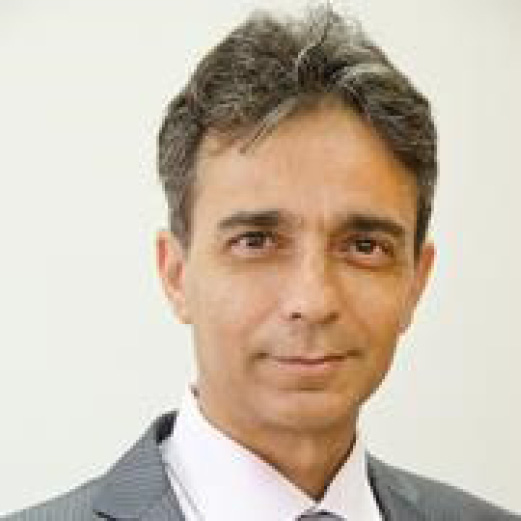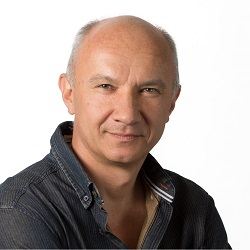13:30 - 14:00 - The Upside Down: The Roles and Responsibilities of Cybercrime Syndicates
 Oded Vanunu, Head of Products Vulnerability Research - Check Point Software Technologies
Oded Vanunu, Head of Products Vulnerability Research - Check Point Software Technologies

Cybercrime is constantly evolving like any public organization, innovative thinking, experts and talents hiring—all the things you expect in a large organization but with a different path: to achieve profitability. This session will deep dive into underground roles and structures and how they operate, and then review major cyber-incidents and look how the underground roles took part in the incidents
14:30 - 17:00 - Quantum Encryption Session
Introduction to the world of quantum computers
 Prof. Yaron Oz, Director, Center for Quantum Science and Technology, School of Physics and Astronomy, Faculty of Exact Sciences, Tel Aviv University
Prof. Yaron Oz, Director, Center for Quantum Science and Technology, School of Physics and Astronomy, Faculty of Exact Sciences, Tel Aviv University
14:50 - 15:25 - Keynote
 Prof. Artur Ekert, Mathematical Institute, University of Oxford Lee Kong Chian Centennial Professor, National University of Singapore, Founding director of the Centre for Quantum Technologies in Singapore
Prof. Artur Ekert, Mathematical Institute, University of Oxford Lee Kong Chian Centennial Professor, National University of Singapore, Founding director of the Centre for Quantum Technologies in Singapore
15:25 - 15:50 - Assessment of the suitability of satellite quantum communications under realistic and finite-sized statistics
 Prof. Alexander Ling, Director, Quantum Engineering Programme at National University of Singapore
Prof. Alexander Ling, Director, Quantum Engineering Programme at National University of Singapore
Recent progress in proof-of-concept quantum communication protocols from space have raised awareness about possibly using satellites to deliver quantum signals as a service. How realistic is this expectation in a real-world scenario? In this talk, I will address some of the challenges, and discuss the prediction of our model for the expected output when using small satellites in Low Earth Orbit.
15:50 - 16:10 - Quantum Energy Landscape and Variational Quantum Algorithms
 Dr. Joonho Kim, Postdoctoral Researcher at Institute for Advanced Study, Princeton, New Jersey
Dr. Joonho Kim, Postdoctoral Researcher at Institute for Advanced Study, Princeton, New Jersey
Joonho Kim is a theoretical physicist working as a postdoctoral research fellow at the Institute for Advanced Study in Princeton, US. Previously, his research focused on quantum field theory and quantum aspects of black holes. He is now actively working on hybrid quantum computing and variational algorithms and looking for their interesting applications.
16:10 - 16:35 - Detuning-modulated composite pulses for high-fidelity robust quantum control
 Prof. Haim Suchowski, Head of the Femto-Nano Laboratory, Department of Condensed Matter Physics, School of Physics and Astronomy, Tel Aviv University
Prof. Haim Suchowski, Head of the Femto-Nano Laboratory, Department of Condensed Matter Physics, School of Physics and Astronomy, Tel Aviv University
Quantum information processing (QIP) relies on high-fidelity quantum state preparation and transfer; this presents a challenge in practical realizations where the admissible error of quantum operations is smaller than 10−4. Thus, even small systematic errors, i.e., due to imperfections in fabrication or in the experimental control knobs, reduce the fidelity of state transfer below the fault-tolerant threshold. A powerful tool to correct for such errors are composite pulses (CPs), initially developed in the field of nuclear magnetic resonance. These are a sequence of pulses with different areas and/or phases that implement accurate and robust quantum gates. A promising candidate for advancing QIP technologies is integrated photonic circuits due to their scalability and on-chip integration capacity. However, the fidelity of operations remains below the QIP due to unavoidable fabrication errors. CPs have not previously been used to correct for such errors, as existing sequences require control of the phase of the coupling, which in integrated photonics is a real parameter.
We introduce a detuning-modulated composite pulses control method for robust QIP and implement our solutions in integrated photonic systems. These correct for errors in various parameters, achieving fidelity above the QI threshold 10−4. Detuning-modulated CPs allow for remarkable error tolerance in qubit inversions. Thus they are perfectly suited for implementation in various quantum information platform including IBM quantum computer as well as integrated photonic circuits. We believe that such new method can provide a path for true high-fidelity QIP schemes.
16:35 - 17:00 - The practicality of commercial QKD in optical transmission
 Prof. Hagai Eisenberg, Associate Professor Racah Institute of Physics The Hebrew University of Jerusalem
Prof. Hagai Eisenberg, Associate Professor Racah Institute of Physics The Hebrew University of Jerusalem



